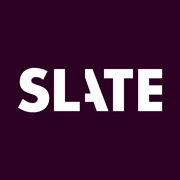This week's best things
Surrealism, impressive HTML, accessible content, a new Swiss passport design, Pixar's rules for storytelling for UX, chatbots and mental health, a new book about Facebook, immersive art and mental health, AI preferences, Gen Z and millennials, documentation, 23andMe, and Gary Oldman laughing a lot.

Make a Surrealist exquisite corpse
A fun AI collaboration between MoMA and Adobe, spotted via Oonagh Murphy.
"At the start of this collaborative game, you’ll be assigned one of three sections of a body. Enter or select words to describe that body part, and AI will generate four different images you can choose from.
Select and submit your image. The remaining two body sections will be completed by other players."
I ended up creating a confused puffin who was given a lovely jacket and some very fetching red high heels.

The HTML Review 04
Spotted via Matt Muir's mammoth weekly Web Curios newsletter is this jaw-droppingly creative example of web design using just HTML (HTML is a markup language that defines the structure and meaning of web content).
"the HTML Review is, once again, a collection of pieces of writing of various forms, by a collection of digital artists and authors, each of which features code as a fundamental, inherent part – none of these…essays, poems, vignettes, ‘interactive text experiments’, whatever you want to call them, would work (or at least not in the same way) were they rendered as static text on a page, and as such they offer a glimpse of some of the communicative and artistic possibilities afforded by simple, in-browser HTML."
It's maybe not always the most usable experience at all times, but it demonstrates that you don't have to go to the most cutting edge technologies (HTML was invented in 1993) to do interesting things with online experiences and storytelling.
Issues 01, 02, and 03 are also well worth a look.
It reminds me of this quote from the Low Tech Manifesto (from 1999): "High technology doesn’t mean high creativity. In fact sometimes the restrictions of a medium lead to the most creative solutions."
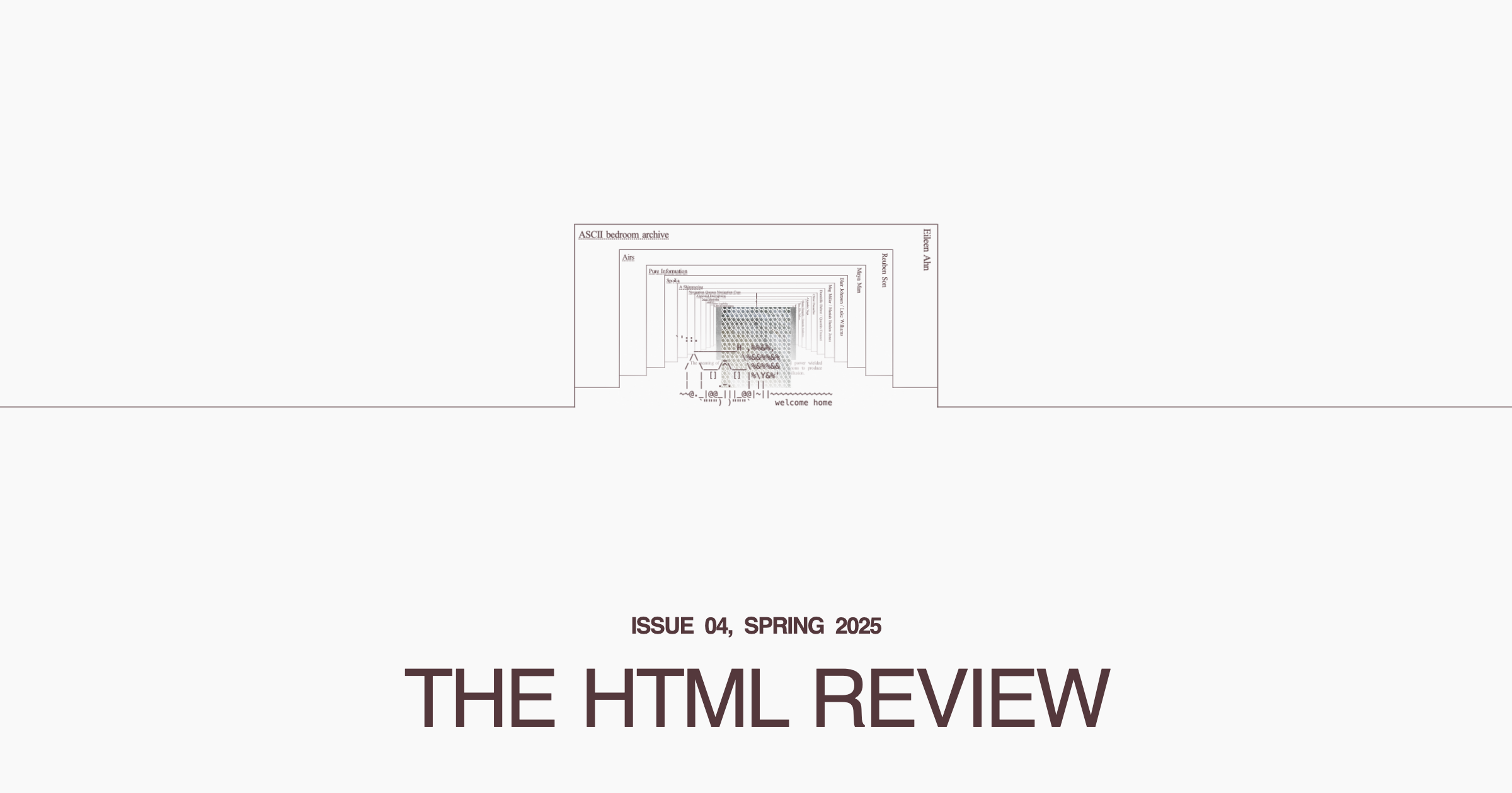
Do you backhand index pointing right find this lightbulb easy to understand brain?
A good reminder on the importance of accessible content from the Government Communication Service.
They have recently published some 'accessible by default' content guidelines:
"These resources have been designed to be downloaded and distributed among communicators, specifically digital and social media content teams."
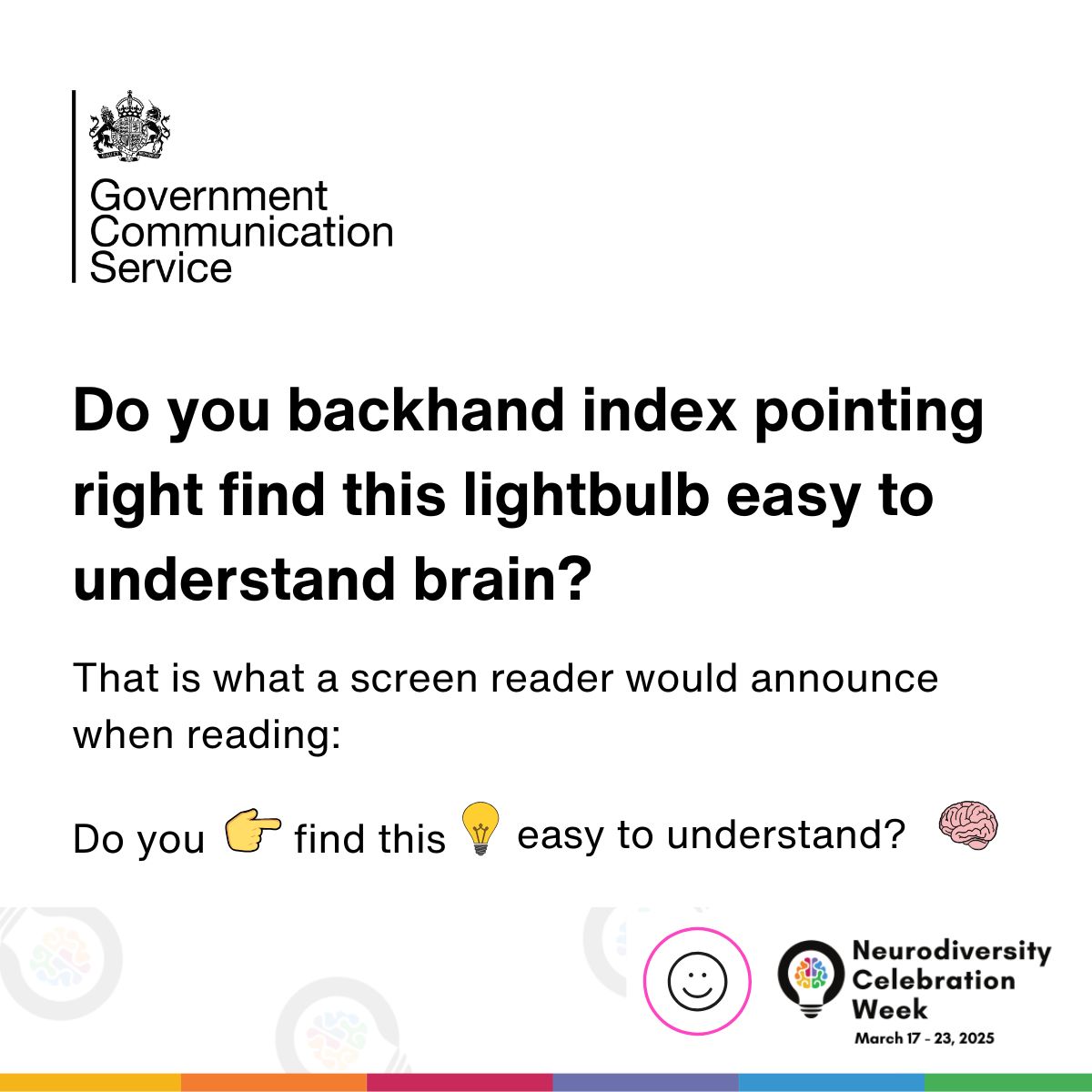

Switzerland’s New Passport Is So Stunning, It Belongs in a Museum


Pixar’s 22 rules of storytelling adapted for UX — because both are about creating great experiences
A post from 10 years ago, but still worth a read as it contains a bunch of interesting ideas and prompts to think differently about digital experiences.
"Really this is about stealing like an artist. No design or experience happens in a vacuum. What we enjoy is a product of our culture, what we experience and what is around us.
Whenever you respond to a design the things you feel are ‘cool’ or ‘trendy’ stem from things you’ve been previously exposed to. If you dig into these feelings you’ll identify design patterns and trends that are actually frameworks you can use to branch out from to create new designs.
This means you need to explore. Find designs and experiences that inspire you. [...] This starts to create a library in your heart and mind that you can draw on to inspire you when you need to start crafting something."
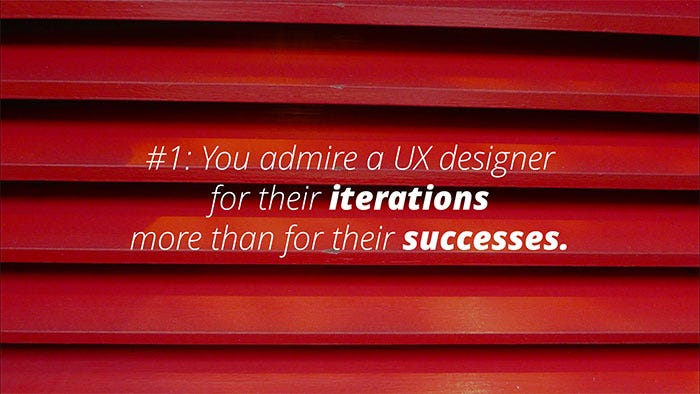
How chatbots could spark the next big mental health crisis
"New research from OpenAI shows that heavy chatbot usage is correlated with loneliness and reduced socialization. Will AI companies learn from social networks' mistakes?"
I'm betting, broadly, on the answer being no.
But it's useful and somewhat encouraging that this research is being released far earlier in the adoption cycle than similar research around social media.
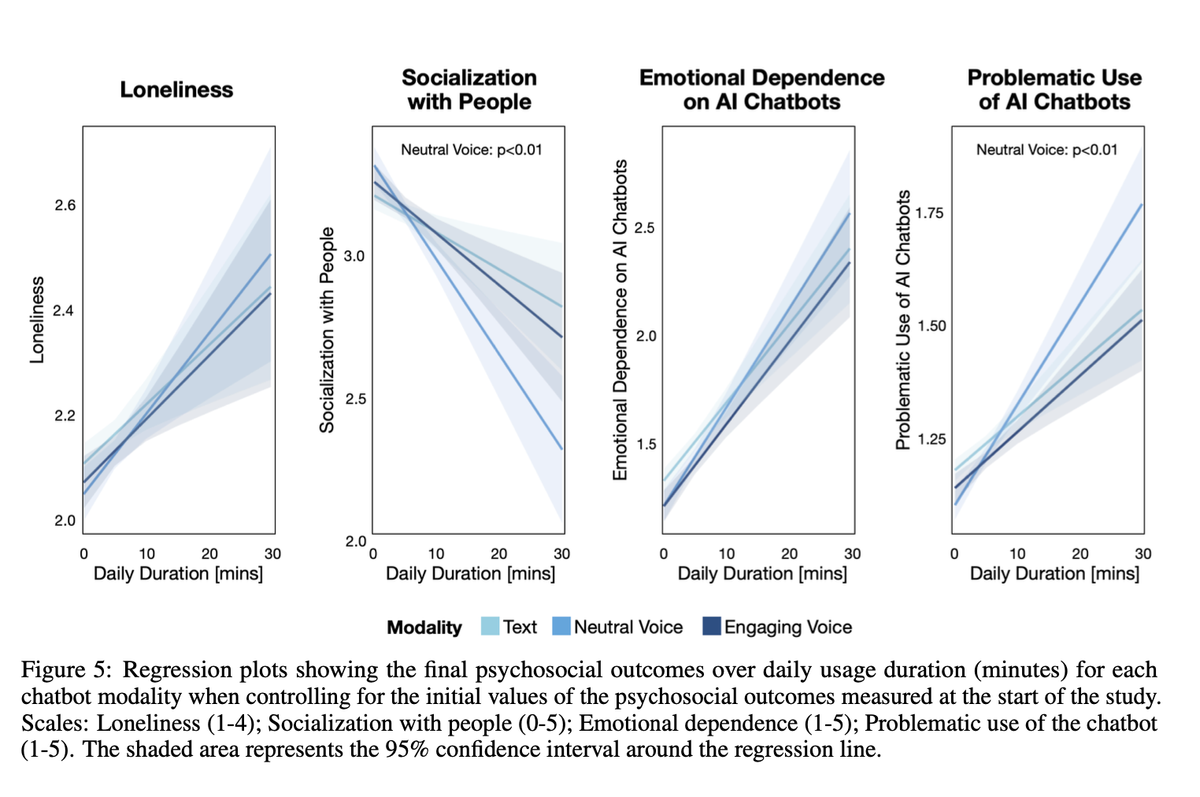
We Read the Book That Mark Zuckerberg Doesn’t Want You to Read. We Can See Why.
And on the subject of social media...I haven't read Careless People yet. But Nitish Pahwa at Slate has, and Facebook/Meta (and specifically the people leading Meta) sounds just as awful as you'd expect.
"Zuckerberg is portrayed as a hybrid of Sam Bankman-Fried and Donald Trump—preferring hoodies and casual wear at all costs, obsessed with crowd sizes, hostile to social norms and matters of etiquette, trusting impulse over plans. A great example of the latter: the infamous “Not Running for President” campaign that, per Wynn-Williams, was definitely kicked off as a resentment-fueled presidential campaign after Barack Obama privately scolded Zuckerberg over Facebook’s misinformation problem. One other: a 2015 keynote speech to the United Nations Private Sector Forum in which Zuckerberg declares that Facebook will be working with the U.N. “to bring the internet to refugee camps”—a plan no one at the company was aware of and that immediately set off a series of panicked emails.
Sandberg, meanwhile, doesn’t seem to understand that Facebook can’t just promote organ-donation drives to all its users across the world, considering various countries’ differing regulations around the practice. (“If my four-year-old was dying and the only thing that would save her was a new kidney, I couldn’t fly to Mexico and get one and put it in my handbag?”) She also “looks bored immediately” after Wynn-Williams informs her of the historic turnout for the 2017 Women’s March, “changing the subject to her weekend plans, meeting up with friends, the possibility of going dancing sometime in the future, redecorating her ski house, something about her apartment in Los Angeles, and some story about her boyfriend Bobby and how he’s trying to buy a private jet or staff for a private jet or something.”"
And on this topic, Hugh Wallace's latest newsletter has just landed in my inbox (hi Hugh) and contains a thoughtful review of the book (and the surrounding bruhaha) as well as the broader picture it paints of so much of our world being controlled by toxic, thin-skinned liars.
"I can't help wondering if this desire for quick fixes, the aspiration to solve complex problems with simple, binary solutions is linked to the fetishisation of founder-led culture that prevails online.
LinkedIn has always been a hive of self-promotion, however can't seem to doomscroll for more than a few posts without facing an assortment of so-called entrepreneurs, creators and pioneers intent on rewriting rules and revolutionising markets."
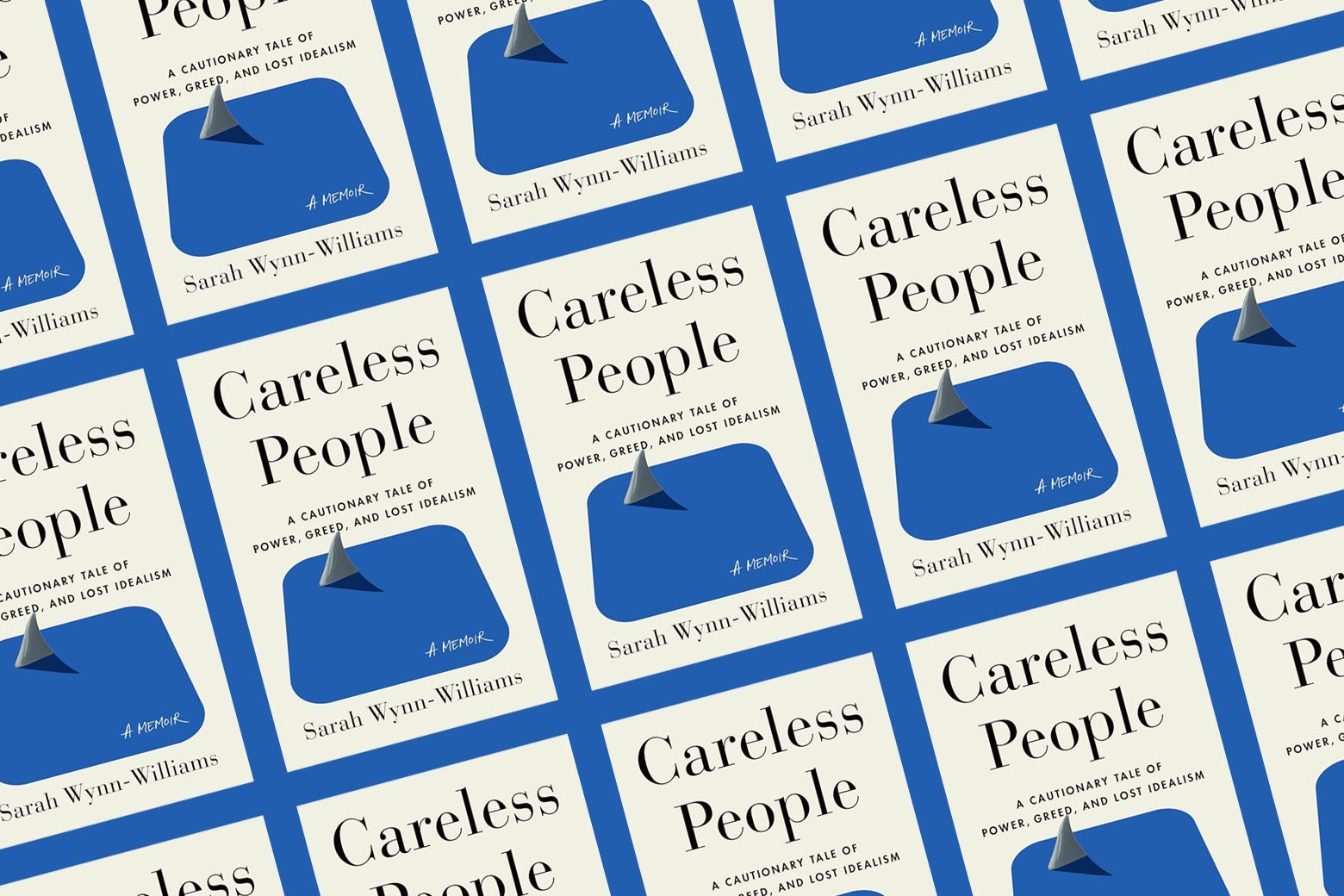
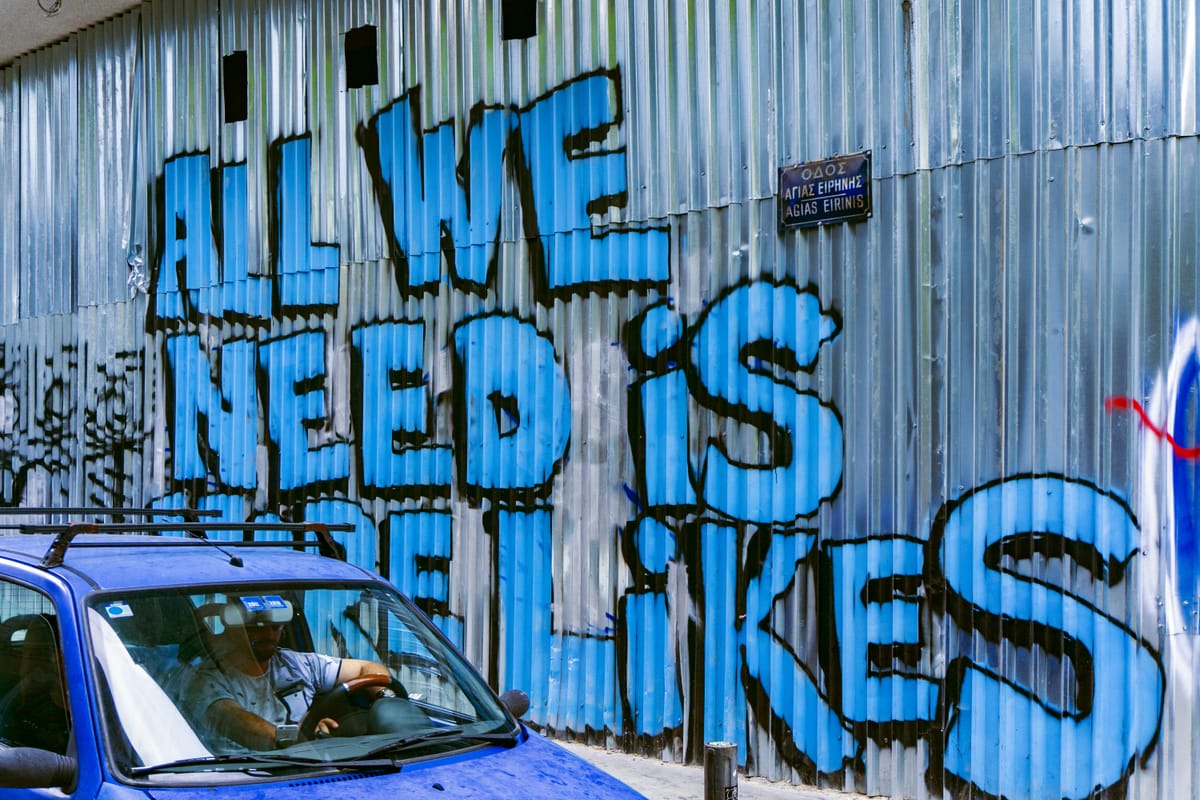
A co-creation pilot with Wellvrse – immersive experiences + measurable wellbeing through creative health
A possibly interesting-looking pilot project from an immersive experience provider which is looking to partner with cultural orgs to support mental health wellbeing.
Their FAQs indicate they're initially interested in experiences that focus on slow looking and colour immersion.
"Cultural institutions are uniquely positioned to play a central role in public wellbeing.
But most programmes are difficult to scale, hard to measure, and lack long-term funding.
We believe that immersive creative experiences, grounded in evidence and backed by data, can bridge this gap.
We’re looking for 3 pioneering institutions to help us build this future.
What We’re Piloting
Wellvrse combines immersive environments (delivered in VR or on-site) with a new measurement framework (WHOLI) to support mental wellbeing in diverse audiences."

People say they prefer stories written by humans over AI-generated works, yet new study suggests that’s not quite true
A reminder to watch what people do rather than what they say.
"People say they prefer a short story written by a human over one composed by artificial intelligence, yet most still invest the same amount of time and money reading both stories regardless of whether it is labeled as AI-generated."
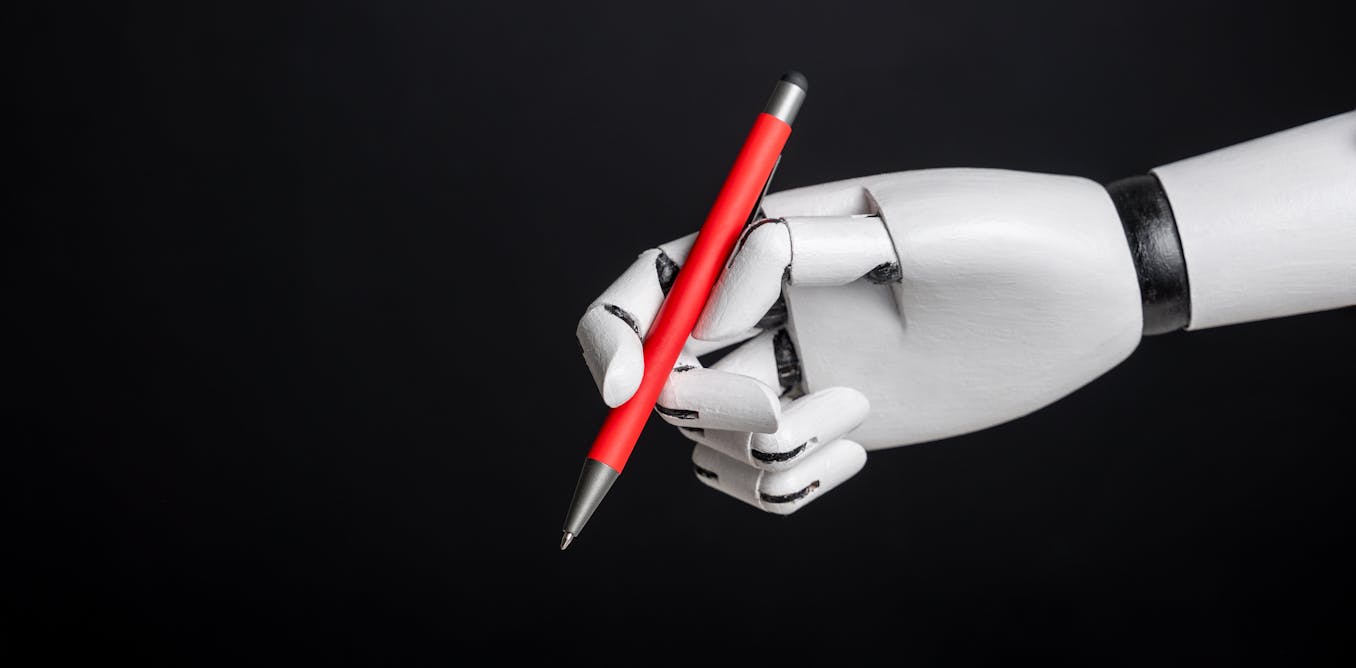
Luminous Ecologies
An immersive experience from an artist in Finland which focuses on "how immersive art can become a force for ecological and social regeneration - rather than a contributor to the problem", this work is part of a broader programme of immersive exploration called MUT-AT1-0NS, which is a Helsinki-based project.
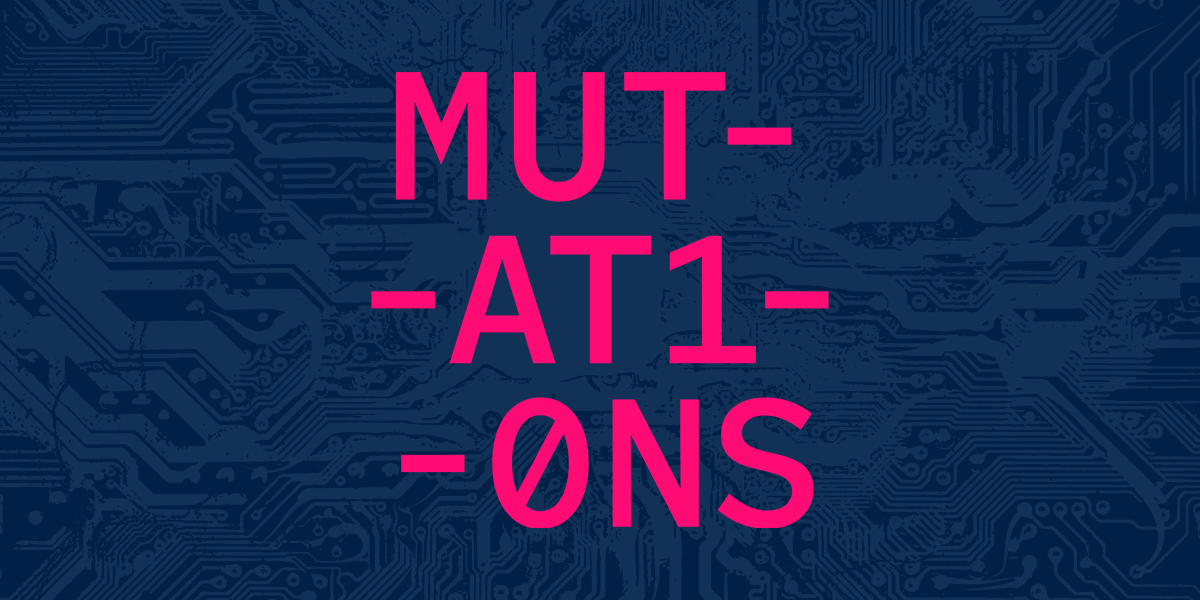

Gen Z is falling in love with the charm and 'cringe' of millennials
Hey elder millennials - wanna feel old?
"Across TikTok, hundreds of people have posted videos celebrating things that are typically associated with millennial culture, including Tumblr, skinny jeans, upbeat music, Barack Obama and, maybe most prominently, HBO’s TV series “Girls.”"
Upbeat music...
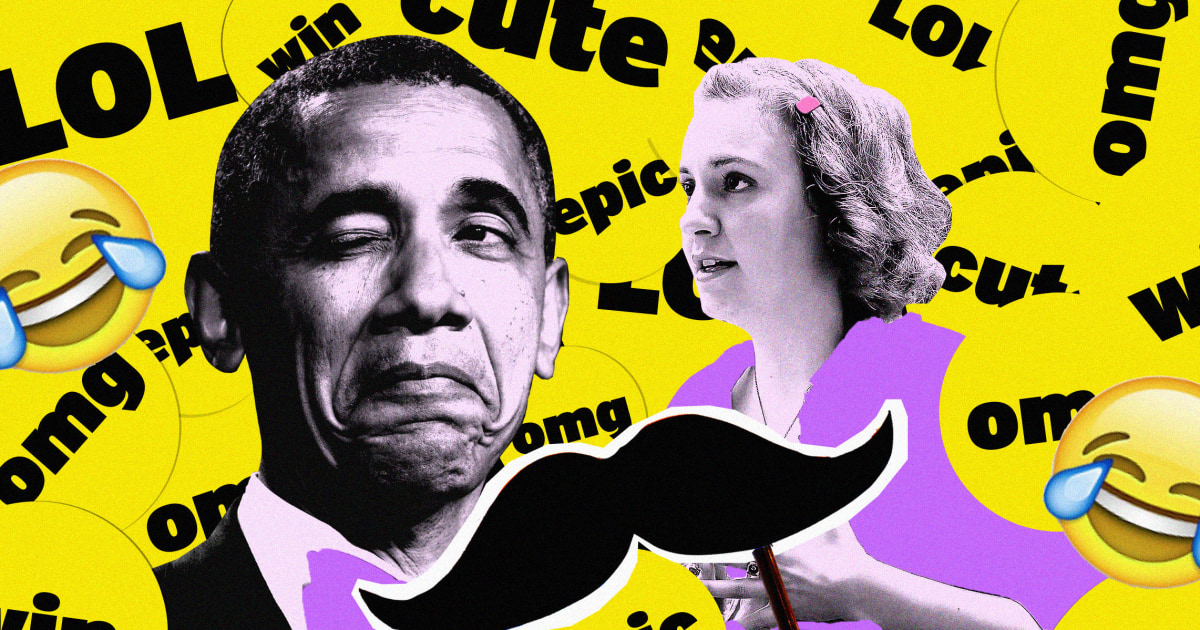
From kickoffs to retros and Slack channels — Stripe's documentation best practices with Brie Wolfson
Documentation is something that many organisations struggle with. Processes, decisions, learnings are often not recorded in a way that would make them visible, referencable (is this a word?), and useful to the most people.
This becomes a particular weakness in hybrid or distributed organisations.
So this podcast chat with Brie Wolfson talking about Stripe's "culture of writing and documentation" was a good listen.
"a paper trail might be just like, hey, these are notes from the meeting or, these are the actions that came out of this thread. And a curation is just, okay, I've done this body of work and now I'm gonna talk about it in a way that's more interesting that a cross-functional person who doesn't really have context on the details of this work stream might find interesting."
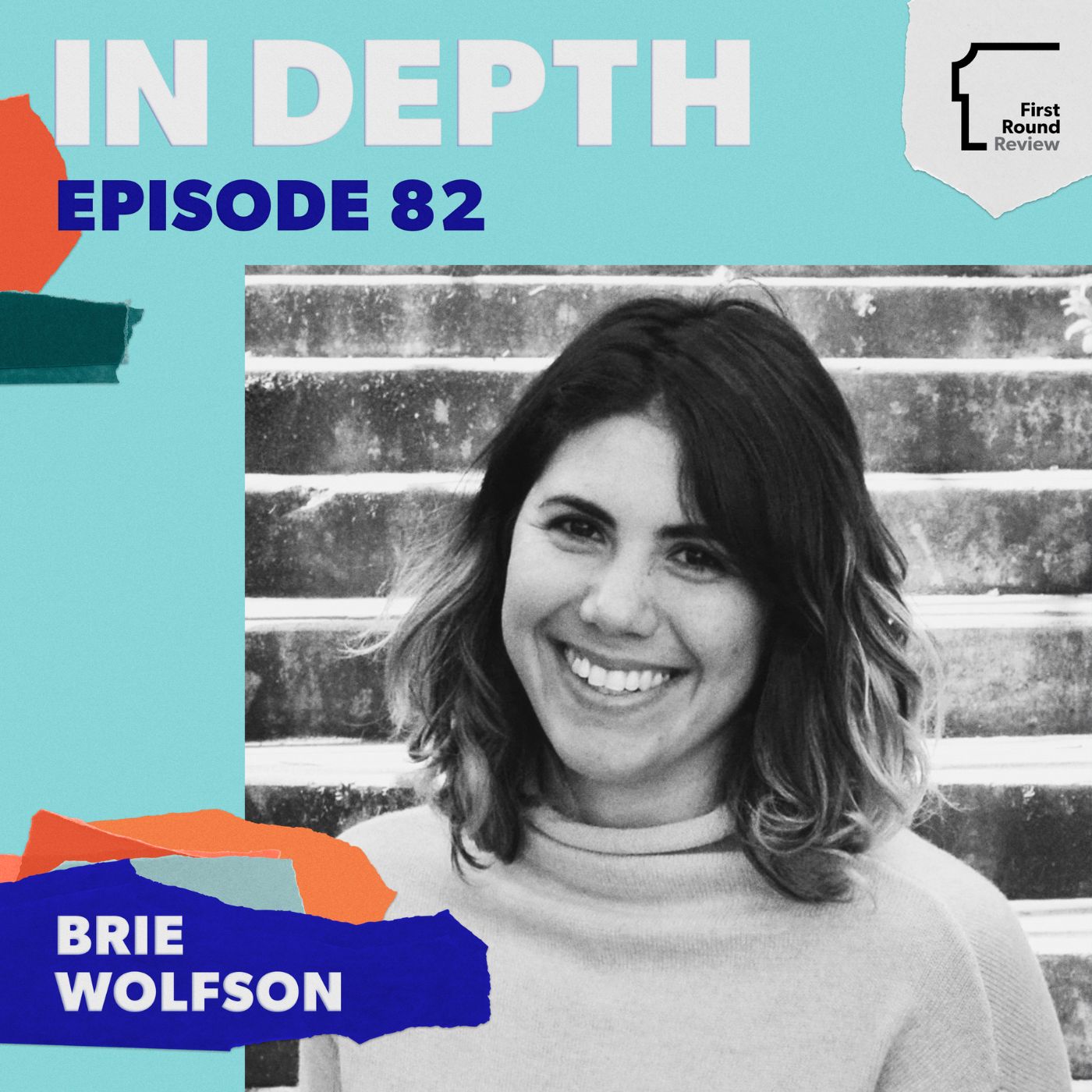
How to delete your 23andMe data after the company filed for bankruptcy
A useful article from NPR about how to delete your data from the now-bankrupt-23andMe, before it gets sold off to god knows who.
"The genetic testing company 23andMe, best known for allowing people to trace their ancestry with an at-home kit, has been struggling financially for months.
So when the California biotech firm announced in a statement this week that it had entered the federal bankruptcy process with the goal of finding a buyer, one question was raised for the more than 15 million users of the service: What's going to happen to my data?"

Vacancies
Survey: Beyond the promise - when digital falls short
A reminder that I am running a short, anonymous survey to gather experiences of digital projects that failed, or fell short. I am trying to identify common issues and lessons learned.
The survey closes in just over 2 weeks and I'd be grateful if you could share any experiences you've had.
The results that have come in so far are really useful and are from a diverse range of organisations.
I'll be sharing the results later this Spring.
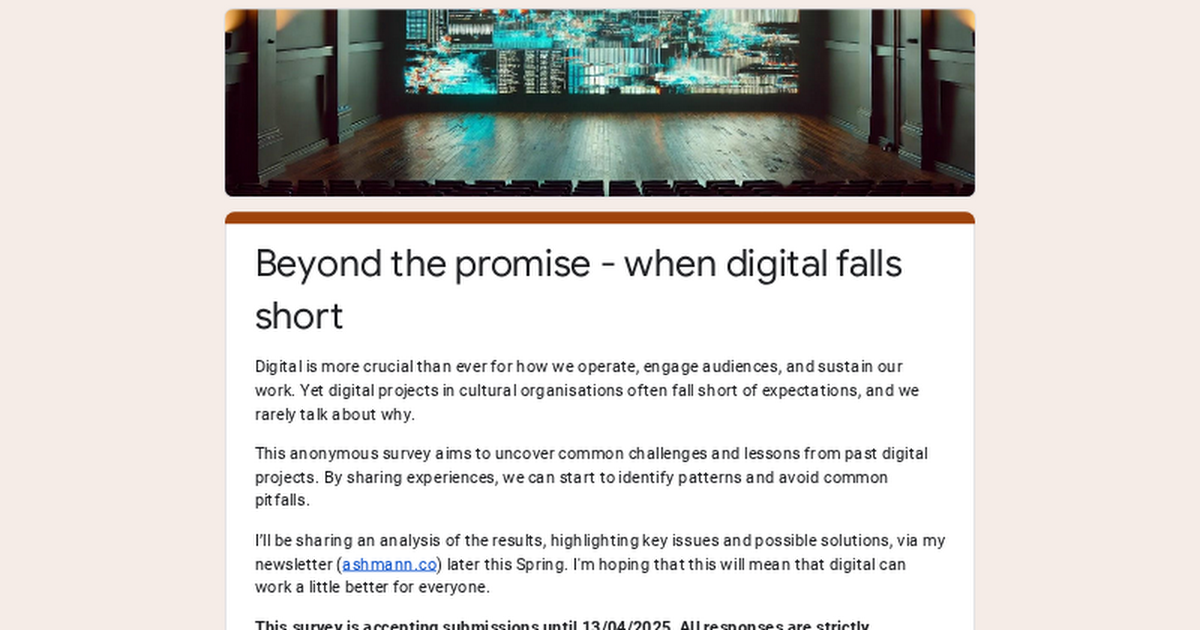
Gary Oldman laughing at farts
There's something about watching Gary Oldman being reduced to a giggling, crying mess by farts being added to clips of his performances that is very sweet.
@colbertlateshow To fart, or not to fart, that is the question. #Colbert #GaryOldman
♬ original sound - colbertlateshow
This week's consumption
I bought a couple of new books, Kim Jiyoung, Born 1982 by Cho Nam-Joo and The Poisonwood Bible by Barbara Kingsolver. I also belatedly wrote up the list of the books I read last year and a few thoughts (words, really) about each one.
I finished watching season 2 of SAS Rogue Heroes which is less silly than season 1, and all the better for it.
We're finally catching up with The White Lotus and are halfway through season 3.
Antoni Porowski was on the Off Menu Podcast, and it was great.
This Tiny Desk Concert from Fred Again is really excellent, it's nice to see his normally-very-electronic music broken down into something more analog and human.
Mr Fred said "I spent weeks practising this and learning instruments I hadn’t played for years to try n make this as special as I possibly could. EVVERRRYYYY thing you hear in this I play totally live. And there are some sounds I really couldn’t believe we were able to make like this. Its one of my favourite things ive ever been a part of"
And to summarise the vibe, one of the comments says "Came for drum and bass, got taken to church. And now I'm sobbing in the bathroom on the clock. This was everything my soul needed."
See you next week
Thanks for reading all the way to the end. I don't know what this is (maybe some sort of automatic poetry thing?) but I enjoyed it.
To finish, a quick reminder that I'm a consultant who helps cultural organisations do better digital work - if it sounds like I could be useful, then let's chat.







